Hashimoto's Disease is an autoimmune condition that causes the immune system to destroy thyroid gland cells. In this disease, antithyroid antibodies attack the thyroid cells step-by-step, worsening the symptoms over time.
Being damaged by antibodies, the thyroid gland can't function properly. Reduced functionality of this part of the body is called hypothyroidism, or underactive thyroid, a condition characterized by insufficient production of thyroid hormones.
In many cases, gradual damage to the thyroid's tissue may not cause noticeable health problems for several years. Moreover, serious issues caused by Hashimoto's disease are not easily linked to this condition. There are many diseases and syndromes which can mimic chronic thyroiditis. Proper tests, including blood tests and thyroid-stimulating hormone level tests, are essential to detect this condition.
Hashimoto's disease is linked to premature menopause, diabetes, Addison's disease, pernicious anemia, and rheumatoid arthritis. It can occur at any age, but women and older adults are more likely to be affected.
There is currently no cure for Hashimoto's disease. However, in the case of hypothyroidism, it can be easily managed with hormone replacement medications. Sometimes, no treatment is needed if the patient's condition is not worsening. Regular check-ups are the only inconvenience for people who experience only mild symptoms.
In humans, the thyroid gland is in the neck, under the voice box. It has a butterfly shape and usually weighs between 20g and 60g. It is responsible for the production and release of essential hormones which control the speed of metabolism.
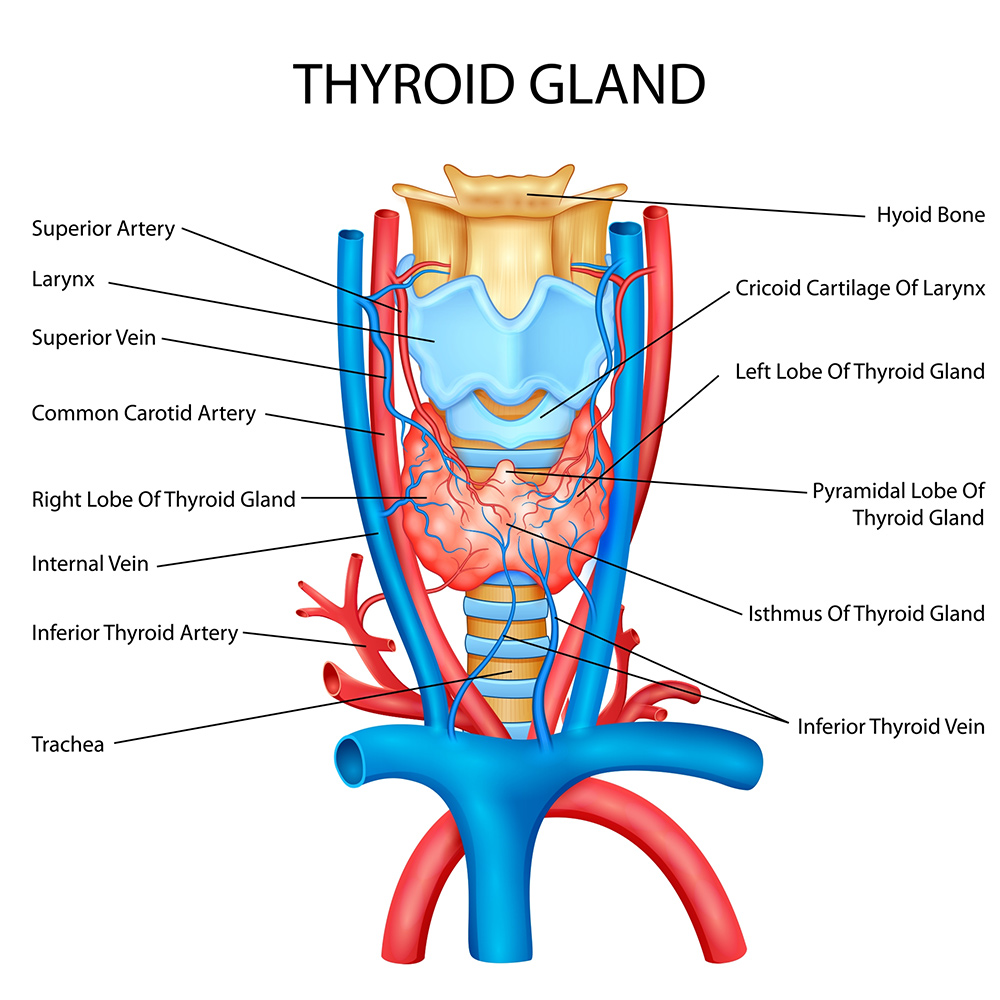
The three hormones, T3, T4, and Calcitonin, are sent to the bloodstream to inform the body how to redistribute energy from food. T3 and T4 control metabolic rate, while Calcitonin decreases the calcium level in the blood.
In specific scenarios like sickness, pregnancy, injury, or physical effort, body cells need more energy to perform their functions properly. If the thyroid gland can't release optimal amounts of hormones, the whole body is affected, causing numerous physical and mental health issues.
Thyroid hormones T3 (Triiodothyronine) and T4 (Thyroxine) affect the following bodily functions:
If the thyroid gland releases too much Triiodothyronine and Thyroxine, the performance of the body cells is faster than optimal. This results in an overactive thyroid (hyperthyroidism), which increases the activity of numerous organs.
As previously stated, an underactive thyroid (hypothyroidism) is much more likely to occur. In this scenario, body cells work slower than they should, decreasing the rate of metabolism in the whole body.
The symptoms of Hashimoto's disease can vary from person to person. The severity of health issues depends on the damage sustained by the thyroid gland. In some cases, no treatment is necessary except for taking specific countermeasures, like a healthy lifestyle and diet, to prevent the thyroid gland from further damage.
Health issues caused by Hashimoto's disease are related to hypothyroidism, hyperthyroidism![]() , and enlarged thyroid. They include the following symptoms:
, and enlarged thyroid. They include the following symptoms:
At the beginning of Hashimoto's disease, the thyroid gland may release more hormones than optimal. Because of this reason, it is often referred to as an overactive thyroid. Like a goiter, it does not happen to everyone. It can cause the following symptoms:
During the early stages of Hashimoto's disease, the thyroid gland may grow larger. When this happens, the front of the neck gets swollen. Enlarged thyroid (goiter) is one of the first signs of Hashimoto but is not guaranteed to occur. It causes the following issues:
In rare instances, a goiter may become very large and require surgery. Parts of the goiter's whole are removed to make breathing and swallowing comfortable again.
It is not understood why antibodies attack the thyroid gland. Researchers consider several factors that may contribute to the development of chronic autoimmune thyroiditis.
Genetics are among the most often discussed causes. A family history of Hashimoto is common when it comes to this disease.
Vulnerability to iodine may also be the case, according to the research. Iodine is an essential component of hormones T3 and T4. Sensitivity to this element may cause Hashimoto's disease to develop.
It is believed that sex hormones also affect the chance of developing Hashimoto's disease. It is 4 to 10 times more likely in women than men, especially between ages 30 and 50.
Radiation exposure may also cause the immune system to attack the thyroid gland. A noticeable increase in Hashimoto's sufferers was observed among people exposed to radiation during such events as the atomic bombings in Hiroshima and Nagasaki and the Chornobyl disaster.
Treatment for Hodgkin's disease, a rare cancer of the lymphatic system, which includes radiation therapy, can also result in autoimmune conditions.
Diet, lifestyle, mental health, and various environmental factors may also increase the risk of developing Hashimoto's disease. According to Dr. Josh Axe, certified doctor of natural medicine, chiropractic, and clinical nutritionist, the below factors should also be considered as root causes of hypothyroidism:
Some people are more likely to develop Hashimoto's disease. The risk increases if, for instance, someone already suffers from an autoimmune illness![]() , is above 50 years old, leads an unhealthy lifestyle, abuses certain substances, or is a woman.
, is above 50 years old, leads an unhealthy lifestyle, abuses certain substances, or is a woman.
Autoimmune disorders increasing the risk of Hashimoto's disease include:
As outlined in the previous paragraph, women are more susceptible to Hashimoto's disease. The reason why this happens is currently unknown. According to one hypothesis, women are more likely to suffer from anxiety and experience more stress than men. Hormonal changes caused by pressure and stressful life may put women at more risk of developing this autoimmune condition.
Another impactful factor is age. Chronic thyroiditis rarely occurs in children, with most cases including people between the ages of 20 to 60. Researchers believe the risk is the greatest above 50 years old and keeps increasing.
Traumatic experiences or prolonged periods of extreme stress can also be considered causes of Hashimoto's disease. Stress can lower the immune system's performance, cause hormonal imbalances, and, most importantly, disrupt the conversion of thyroxine to triiodothyronine.
The reason why women are more likely to suffer from Hashimoto's disease is also related to pregnancy. Thyroid glands can be affected by the processes undergoing in the body during pregnancy. Because of that, some women may develop an immunologic response to their thyroid while pregnant or up to one year after giving birth. This occurrence is known as postpartum autoimmune thyroid syndrome and heals independently after some time. However, 1 in 5 women affected by this condition develop chronic thyroiditis within a few years.
Some researchers mention unhealthy habits like smoking![]() and drug abuse as contributing factors to Hashimoto's disease. Although a direct link between smoking and chronic thyroiditis hasn't yet been discovered, tobacco products and certain drugs negatively impact the thyroid gland's functionality, which may increase the risk of developing an auto-immunologic response to one's thyroid.
and drug abuse as contributing factors to Hashimoto's disease. Although a direct link between smoking and chronic thyroiditis hasn't yet been discovered, tobacco products and certain drugs negatively impact the thyroid gland's functionality, which may increase the risk of developing an auto-immunologic response to one's thyroid.
A physician identifies chronic thyroiditis based on noticeable signs such as hair loss, dry skin, enlarged thyroid, and sudden weight gain. Age, sex, and family medical history are also considered during an appointment with a doctor.
However, one or more blood tests may be required to detect Hashimoto's disease accurately. The most common tests include a thyroid-stimulating hormone test (TSH), a screening test for T4 (thyroxine) and T3 (triiodothyronine), and a test for the presence of thyroid peroxidase antibodies (TPO), thyroid antibodies associated with Hashimoto's disease.
The result of the TSH test is divided into three categories:
Hashimoto's disease may be difficult to detect if antithyroid antibodies are not present in a person's blood despite the occurrence of symptoms common for this condition. In such a scenario, a thyroid gland ultrasound may be needed. An ultrasound provides data on the thyroid's gland size and checks if the gland's structure is affected by antibodies. It is a valuable tool to rule out other possibilities, such as lumps caused by the overgrowth of cells in the thyroid.
Chronic thyroiditis can be successfully treated with thyroid hormone replacement medications – usually synthetic T4 within a few months. They come in pill form and must be taken daily for the rest of the person's life.
Thyroid hormone replacement pills restore the body's optimal metabolism rate, which eliminates Hashimoto's symptoms. The strength and dose of pills are determined by several factors, including the patient's age, medicines they already take, weight, severity of symptoms, and other health issues.
Regular check-ups are required to control the patient's condition and adjust the dose of thyroid medicine every 6 to 8 weeks.
Certain foods can interfere with the absorption of hormone-replacement medications. The most problematic foods and drinks include soy, walnuts, grapefruit juice, and strong coffee. It's best to take pills on an empty stomach in the morning, 30 to 60 minutes before breakfast.
Table of Contents

The thyroid is an endocrine gland. What hormones does it produce? Learn what are most popular thyroid diseases and what's… read more »

Hypothyroidism is a disease caused by insufficient levels of hormones produced by the thyroid gland. Find out, what are the… read more »

Hashimoto's disease is an autoimmune disease. May cause hypothyroidism. Check what are the symptoms of Hashimoto's disease and how it… read more »
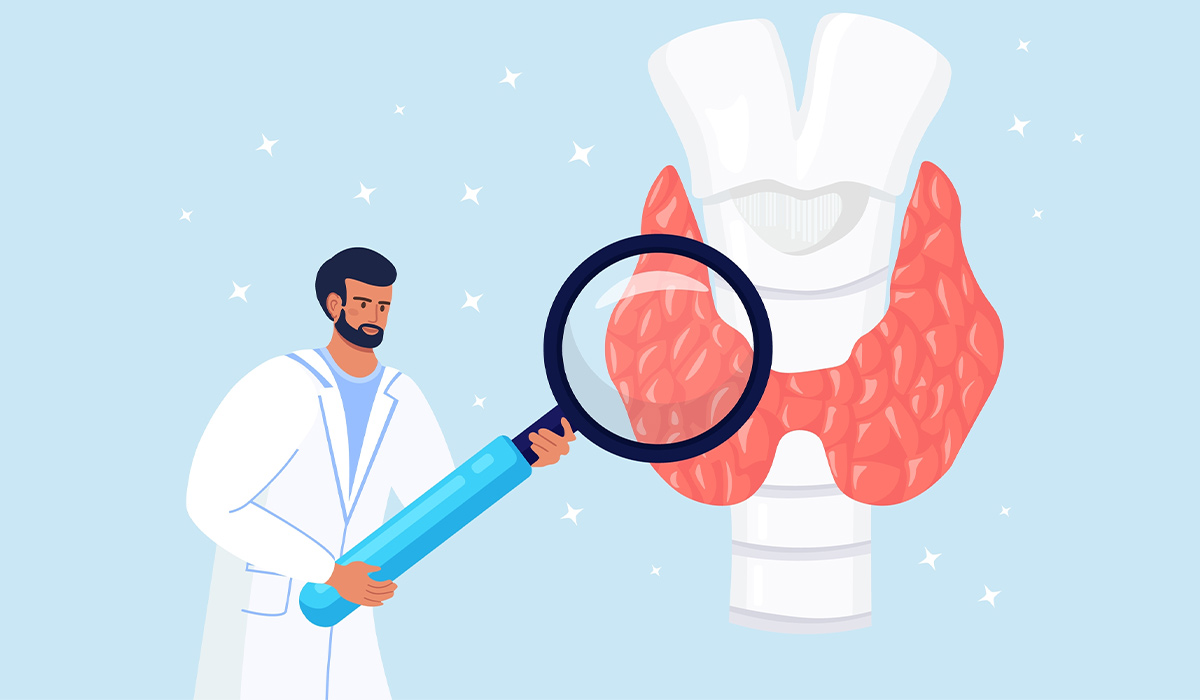
The thyroid is a small organ whose hormones regulate the body's metabolism. Check what are the signs of thyroid problems.… read more »
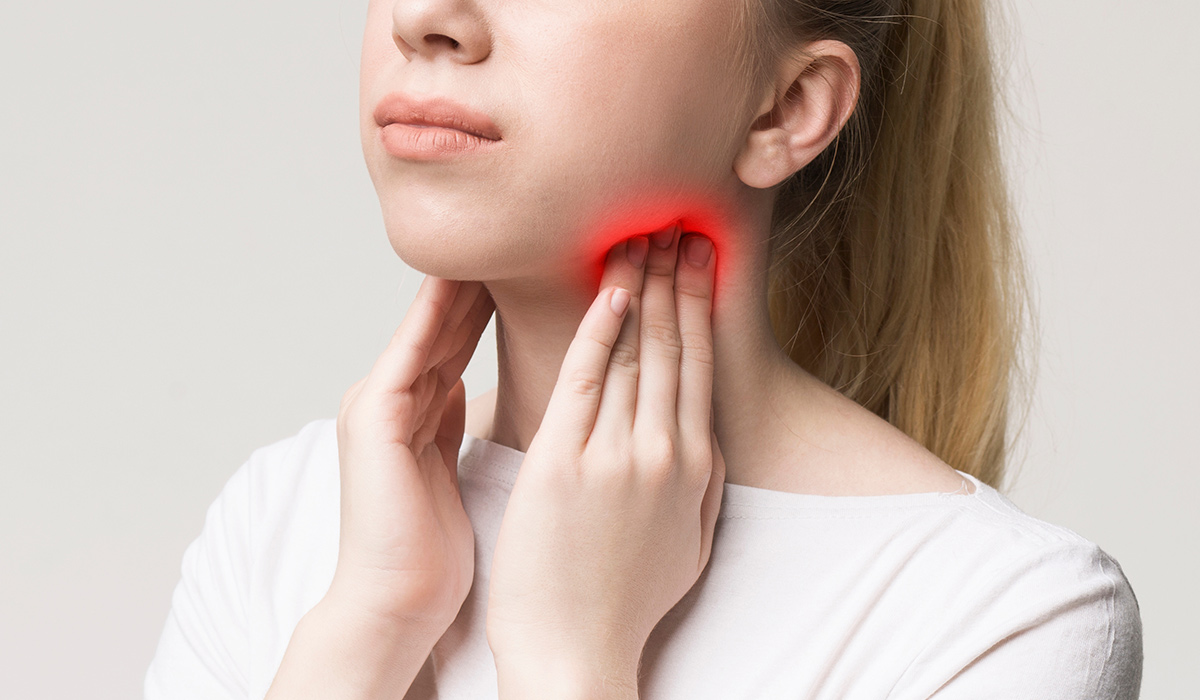
Hyperthyroidism is a condition in which the body produces too many hormones. This causes various symptoms and complications. Check out… read more »
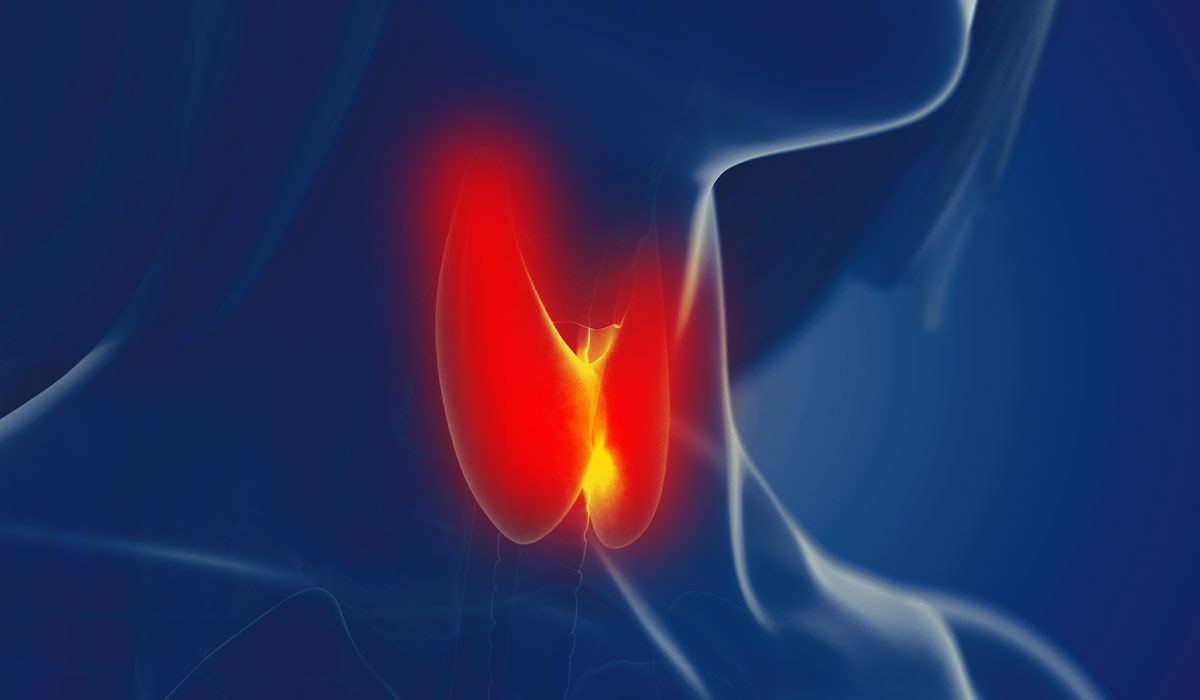
Goiter is an enlargement of this gland. It is not a disease itself, but rather a symptom of a medical… read more »
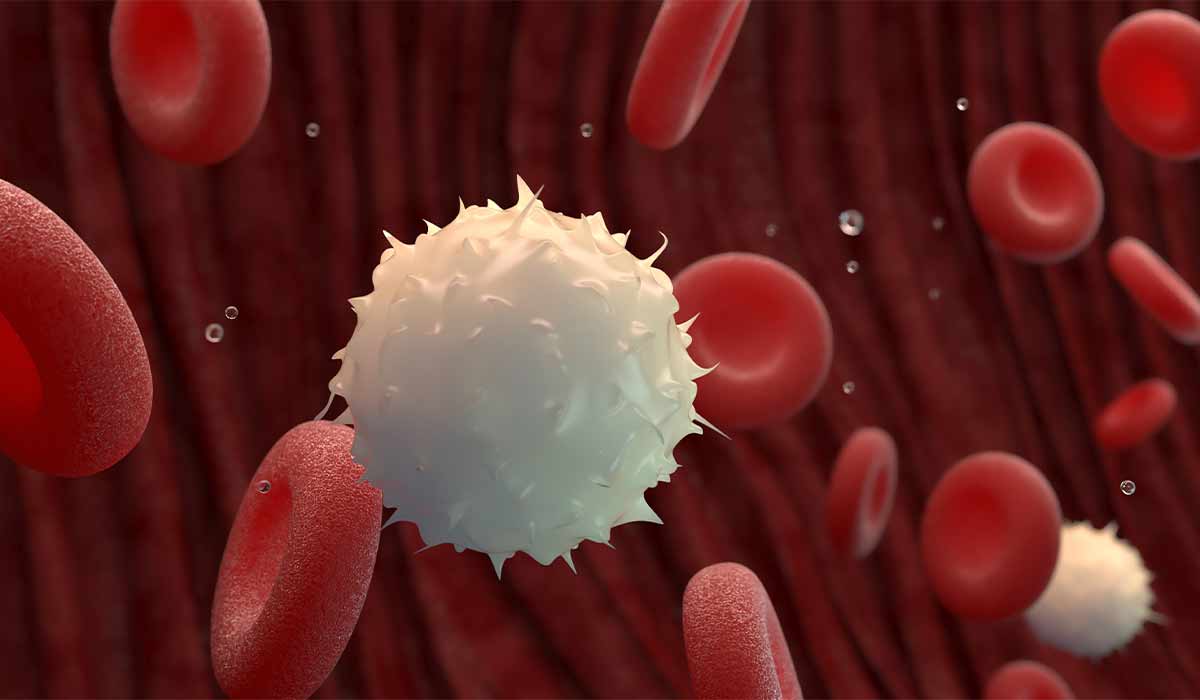
Autoimmune diseases are conditions in which the immune system works incorrectly – it begins to attack the body's tissues. What… read more »

Graves' disease is one of many autoimmune diseases that affect various organs, glands, and systems throughout the human body. It… read more »

An endocrinologist is a doctor who deals with the organs that secrete hormones. Learn about diseases that are related to… read more »